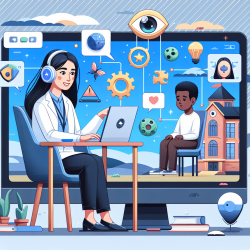Introduction
The shift to virtual care (VC) during the COVID-19 pandemic has transformed the healthcare landscape, particularly for non-physician healthcare providers. The study titled Exploring virtual care clinical experience from non-physician healthcare providers (VCAPE) delves into the experiences of these professionals, including nurse practitioners, occupational therapists, physiotherapists, psychologists, registered dietitians, social workers, and speech-language pathologists. This blog aims to highlight key findings from the study and provide actionable insights for practitioners looking to enhance their virtual care delivery.
Key Findings from the VCAPE Study
The study identified four main themes:
- Quality of Care: Virtual care was often seen as more convenient and less stressful for patients, offering benefits such as increased attendance and flexibility in scheduling. However, challenges included lack of visual cues and technology issues.
- Resources and Training: Most providers had minimal training for virtual care, highlighting a need for comprehensive training programs that include best practices and technology troubleshooting.
- Healthcare System Efficiency: Virtual care was perceived to enhance system efficiency by reducing travel time and increasing patient intake. However, it also introduced new administrative tasks for providers.
- Health Equity and Access: While virtual care can improve access for patients with technology, it also risks excluding those without. Recommendations include providing access to technology and safe spaces for virtual consultations.
Implementing Study Insights
Practitioners can leverage these insights to improve their virtual care delivery:
- Invest in Training: Develop and participate in training programs that focus on virtual care delivery, privacy, and technology use.
- Enhance Patient Engagement: Use strategies like pre-session homework and clear expectation setting to improve patient interaction and engagement.
- Optimize Technology Use: Choose the right platforms for your practice and ensure you have the necessary IT support.
- Address Health Equity: Advocate for resources that ensure all patients have access to virtual care, such as technology grants or community-based internet access points.
Encouraging Further Research
While the VCAPE study provides valuable insights, further research is needed to explore long-term impacts and develop standardized practices for virtual care. Practitioners are encouraged to engage in research initiatives and share their experiences to contribute to the evolving landscape of virtual healthcare.
To read the original research paper, please follow this link: Exploring virtual care clinical experience from non-physician healthcare providers (VCAPE).










